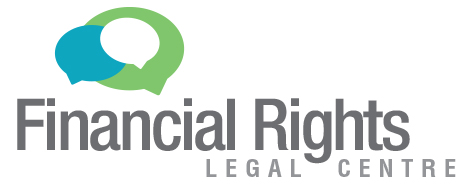This fact sheet is for information only. You should get legal advice about your personal situation.
Main ideas
• You must pay the toll if you drive on a toll road.
• If you get a toll notice for not paying a road toll but were not driving at the time, nominate the person who was.
• Administration fees are added to unpaid road tolls. These can quickly add up to a large amount.
• Toll debts can be referred to a third-party debt collector or to Revenue NSW.
• You can complain about toll debts to the Tolling Customer Ombudsman.
In this fact sheet:
If you drive on a toll road, you must pay a toll
Two types of action if you don’t pay a final toll notice
1. Collection action by the toll road operator
2. State government action
Dealing with road toll debt
• Reducing administration fees
• Financial hardship
If you drive on a toll road, you must pay a toll
You must pay a toll every time you drive on a toll road.
The easiest way to pay road tolls is with an electronic tag linked to a toll account. The account should have enough money in it to pay each toll – most toll accounts can be automatically topped up from your bank account. No toll road in NSW allows cash payment.
If you don’t have a toll account, you can buy a pass to cover the cost of your road tolls. You can backdate the start date by a few days if you have already driven on a toll road.
Some toll companies have mobile apps you can use to log your trips and pay your tolls.
If you use toll roads often, you may be entitled to a rebate on your tolls. Read details about the NSW Toll Relief Rebate on the Service NSW website.
Two types of action if you don’t pay a final toll notice
If you do not have a toll account, or if there is not enough money in your account, or if your electronic toll tag is not working properly, you will not have paid the toll when you drive on a toll road. You have 3 days to contact the toll company and organise payment.
1. Collection action by the toll road operator
Unpaid tolls, and the administration fee, can quickly build up to a large amount if you drive on toll roads often. An administration fee is added every time you drive on a toll road without paying.
Toll Notice
If you do not pay the toll within 3 days, the toll road operator will send the registered owner a Toll Notice. This will detail the toll trip and the cost of the toll. It will also include an administration fee.
If you were not driving at the time, you should complete a statutory declaration that nominates another person who should pay the toll. You need the other person’s details, including their name, address and driver’s licence number. You need to complete a separate statutory declaration for each Toll Notice. You can nominate:
- the person who was driving at the time
- the new owner, if the toll road trip was after you sold the vehicle
- the previous owner, if the toll road trip was before you bought the vehicle.
A new Toll Notice will be sent to the person you nominate.
If you do not agree with the notice, you can lodge an objection explaining why you think the notice is wrong. Read below about complaining to the road toll operator.
Final Toll Notice
If you don’t pay the first Toll Notice, you will get a Final Toll Notice asking you to pay, with another administration fee added on. Administration charges are often more than the toll charge and are added to each unpaid toll.
Debt collection
If you do not pay the Final Toll Notice, the debt will be referred to either a third-party debt collector or to Revenue NSW. Read our fact sheet about Dealing with Debt Collection.
The debt collector can start court action against you to recover the debt. If you receive a Statement of Claim about your unpaid tolls, get legal advice urgently. Read our fact sheet about NSW Local Court.
2. Revenue NSW action
Not paying a road toll is an offence.
If you do not pay the final toll notice on time, the debt may be referred to Revenue NSW, who become responsible for managing the recovery of the debt.
You may be issued with a fine notice (previously called a penalty notice) and will need to deal directly with Revenue NSW.
If you cannot pay in full straight away, contact Revenue NSW immediately on 1300 138 118. First Nations peoples can also call Revenue NSW’s First Nations team on 1800 002 345. You can ask for a payment plan, or you may be eligible for a Work and Development Order (WDO). You can read about Revenue NSW’s hardship policy on their website.
If you do not pay the fine notice on time, an overdue fine may be issued, with added fees.
If you do not pay the overdue fine, Revenue NSW can issue an overdue fine notice and take further recovery action. This can include:
- cancelling your licence/s
- refusing to register your vehicle, or cancelling the registration
- taking and selling items from your property to pay off the debt (essential household items are protected)
- taking money directly from your salary or bank account to pay off the debt
- taking you to court to determine your financial position.
Dealing with road toll debt
Do not ignore road toll debt. The debt will keep growing with fees and possibly fines. Not paying your road tolls can result in your licence or registration being cancelled. If you ignore debt collectors, they may take you to court. A court judgment may be listed on your credit report. Read our fact sheet about Credit Reports.
Reducing administration fees
If the debt has not been referred to Revenue NSW, you may be able to negotiate with the toll road operator or debt collector to remove some or all of the administration fees.
If you have an electronic road toll account, you may be able to transfer your outstanding road tolls to the account. Often the administration fees are reduced considerably if you pay through your account.
Financial hardship
If you are being chased by the toll road operator or a debt collector and you have not paid your tolls because you are experiencing financial hardship, you may be able to negotiate a financial hardship arrangement.
They may agree to:
- extend the due date for payment
- develop an affordable payment plan with you
- give you a payment-free period
- reduce the amount you owe them.
Toll operators and debt collectors will generally look at your financial situation, including your income and whether you are eligible for any government payments. Tell them what you want them to take into account in deciding how to help you – for instance, if you have health issues, or are a single parent, or experiencing domestic violence.
You should also check the toll operator’s online financial hardship policy.
Get legal advice if you are not happy with the toll company’s response to hardship.
If the debt has been referred to Revenue NSW, you will need to deal with Revenue NSW directly. Revenue NSW also have a hardship policy, and you may be eligible for a Work and Development Order (WDO). Legal Aid NSW has an excellent guide for how to respond to fines on their website.
Bankruptcy
If you are going bankrupt, your road tolls may not be included if the unpaid tolls have been included in a fine issued by a state government or court. Get legal advice first if toll debts are your main reason for considering bankruptcy
Complaining about road tolls
Complain to the toll operator first. Ask them to review the amount they claim you owe them.
If your toll is from driving across the Sydney Harbour Bridge/Tunnel, complain to the NSW Ombudsman.
If the toll company is Linkt, you can complain to the Tolling Customer Ombudsman (TCO). You should:
- Complain as soon as possible after getting an unsatisfactory response from the toll operator.
- The toll operator may decide to pause action while the complaint is being investigated by the TCO, but it does not have to.
- Complaining to the TCO will not stop any court action that has already started.
The TCO can help you and the toll operator agree about unpaid tolls or other complaints. But it can’t deal with your complaint once court action has started. TCO cannot award financial compensation.
If you are not satisfied with the response from the TCO, seek legal advice.
If legal action starts against you or is threatened, get legal advice immediately. Contact LawAccess on 1300 888 529 or your local Legal Aid NSW office for advice.
Need more help?
Visit our Useful Links page for a list of other resources.
For more information about Unpaid Tolls check the NSW Government website about Tolling.
Last updated: January 2025

